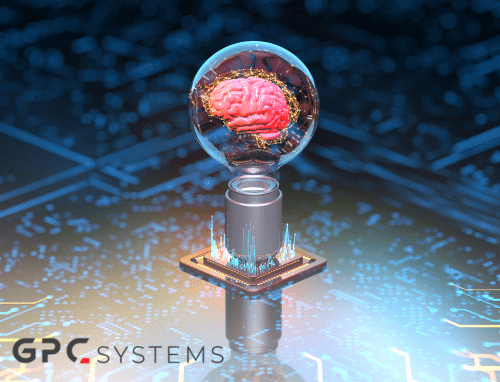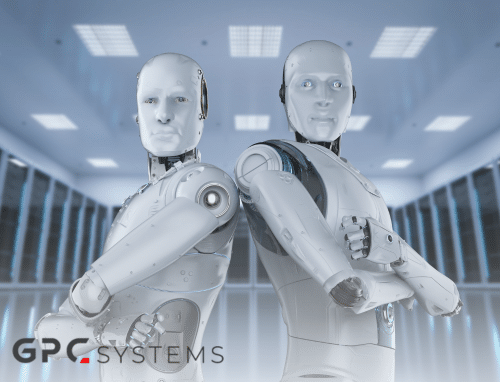
AI’s Breakthrough in UK Government: : A Journey from Humble Beginnings to an Algorithmic Future
In the quiet corridors of Whitehall, where the echoes of history meet the hum of modern governance, a new revolution is quietly unfurling. Artificial Intelligence (AI), once the stuff of science fiction, is now becoming a reality in the heart of the UK government. But how did this all begin, and where is it headed? To understand the present and future, we must first trace the steps of this digital evolution.
The Beginnings: A Modest Start
The UK government’s relationship with AI began tentatively, almost experimentally, in the early 2010s. It was during David Cameron’s premiership that AI first caught the attention of policymakers. The Cabinet Office, ever watchful of technological trends, initiated exploratory projects aimed at harnessing AI’s potential. These early initiatives were modest, focusing primarily on data analysis and predictive modelling. Departments like the Ministry of Defence and the National Health Service (NHS) became early adopters, using AI to enhance operational efficiency and improve decision-making processes.
The turning point came in 2017, when the government published its Industrial Strategy, marking AI as a key pillar for future economic growth. This strategy wasn’t just a nod to innovation; it was a clear signal that AI would play a crucial role in shaping the UK’s future. The creation of the Office for Artificial Intelligence that same year signified a commitment to not only explore but also integrate AI into the fabric of government operations.
Progress and Evolution: From Data to Decisions
Over the years, AI’s role within government has expanded exponentially. No longer confined to niche projects, AI is now embedded in a range of public services and administrative processes. The NHS, for instance, uses AI to predict patient admission rates, optimise resource allocation, and even assist in diagnosing diseases with unparalleled accuracy. In law enforcement, AI tools are deployed to analyse vast amounts of data, helping to identify criminal patterns and predict areas where crimes are likely to occur, thus enabling more targeted policing efforts.
One of the most significant developments has been the integration of AI in policy-making. The Treasury, for example, utilises AI-driven economic models to forecast the potential impacts of fiscal policies. These models can simulate complex economic scenarios with a level of detail and speed that was previously unimaginable. Similarly, the Department for Work and Pensions has adopted AI to streamline benefit distribution, reducing errors and speeding up the process for millions of claimants.
The Future: An AI-Driven Government?
Looking forward, the UK government is poised to deepen its reliance on AI, with potential applications that could fundamentally reshape how the state operates. AI could revolutionise everything from public transport management to environmental monitoring, making governance more efficient and responsive.
One area of particular interest is the potential for AI to enhance democratic processes. Imagine AI algorithms analysing public sentiment to inform policy decisions or even drafting legislation that reflects the nuanced views of the electorate. There’s already talk of AI being used to monitor and counter misinformation during elections, ensuring that democratic discourse remains grounded in truth.
However, as with all technological advancements, there are significant challenges and risks associated with the adoption of AI in government.
The Pros and Cons: Balancing Innovation with Caution
The potential benefits of AI in government are vast. Efficiency is one of the most compelling advantages—AI can process and analyse data at speeds far beyond human capability, enabling faster and more informed decision-making. This could lead to more effective public services, from healthcare to welfare, with resources allocated more precisely and waste minimised.
Moreover, AI has the potential to reduce human error and bias in government operations. In theory, algorithms can make decisions based on data and logic, free from the prejudices that can influence human judgment. For instance, AI could help create fairer systems for distributing public funds or assessing social services, ensuring that decisions are made purely on merit and need.
However, the introduction of AI into government is not without its pitfalls. One of the primary concerns is the risk of algorithmic bias. While AI itself is impartial, the data it relies on is often reflective of human biases. If the data is flawed or biased, the decisions made by AI systems can perpetuate and even exacerbate existing inequalities. This has been a significant issue in the criminal justice system, where AI tools have sometimes produced biased outcomes in sentencing and parole decisions.
Another major concern is transparency. AI algorithms, especially those based on machine learning, can be complex and opaque, making it difficult for even their creators to fully understand how they arrive at certain decisions. In a government context, this lack of transparency can erode public trust, as citizens may feel alienated from decisions made by “black box” systems that they cannot scrutinise or challenge.
Moreover, the reliance on AI raises ethical questions about accountability. Who is responsible when an AI system makes a mistake? Is it the developers, the policymakers who implement the technology, or the AI itself? These questions remain largely unresolved and pose significant challenges for governance in an AI-driven world.
Conclusion: Navigating the Future
As the UK government continues its journey into the AI era, it must tread carefully. The integration of AI into public services and policy-making holds enormous potential, promising to transform governance for the better. Yet, this potential must be balanced with a vigilant approach to the ethical, legal, and social implications of AI.
The future of AI in government is undoubtedly bright, but it is a future that requires careful navigation. As we stand on the brink of this new era, the UK must ensure that the benefits of AI are harnessed in a way that serves all its citizens, while safeguarding the values of fairness, transparency, and accountability that are the cornerstones of democratic governance. Only then can we truly say that AI has found its rightful place in the halls of Whitehall.
At GPC, we stay ahead by exploring AI and staying on top of current trends, continuously improving our software to deliver the best services for your business.




